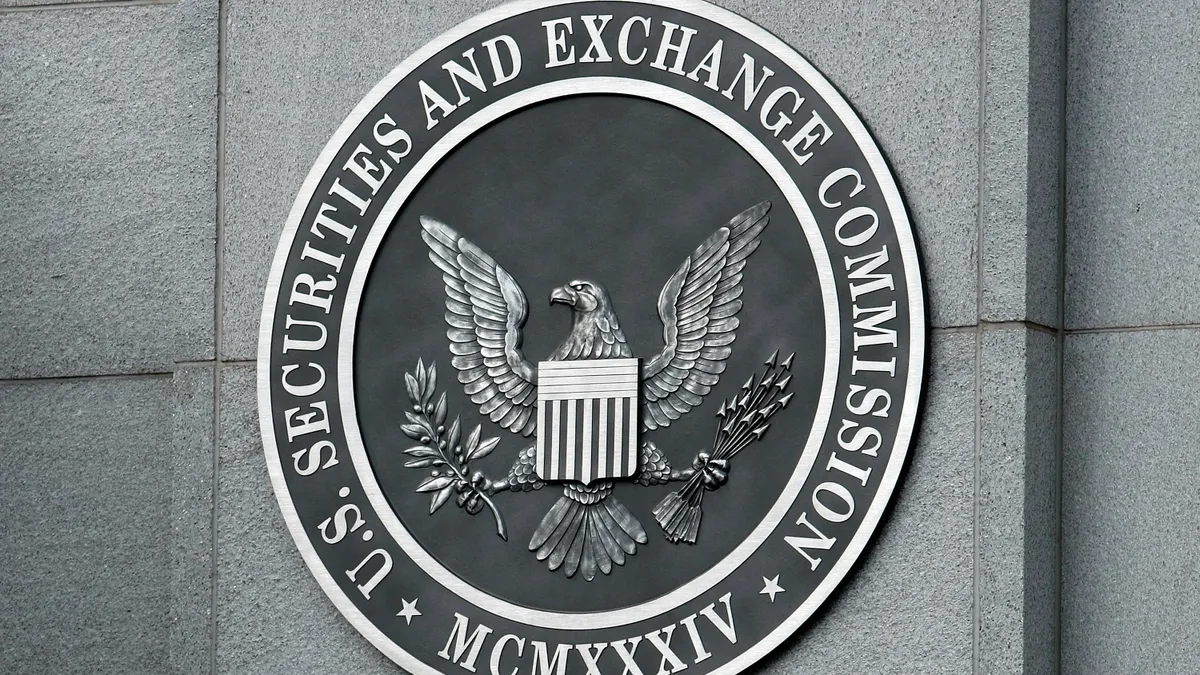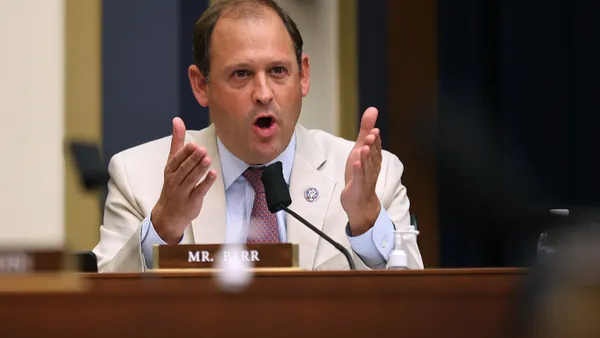Dive Brief:
- The Securities and Exchange Commission sued cryptocurrency firm Consensys on Friday, alleging the firm failed to register as a broker and offered and sold certain securities — violating the law and depriving investors of protections.
- Consensys collected more than $250 million in fees as an unregistered broker, the SEC said. The crypto firm has brokered more than 36 million crypto asset transactions since 2020, including at least 5 million transactions in crypto asset securities.
- Additionally, Consensys has offered and sold tens of thousands of securities for two issuers: Lido and Rocket Pool, becoming an underwriter of those two securities and participating in key distribution points. However, neither issuer filed a registration statement with the SEC for the offer and sale of those investment contracts, the SEC said.
Dive Insight:
Consensys has allegedly acted as an unregistered broker of crypto asset securities through its MetaMask Swaps service since October 2020, the SEC said. Since January 2023, Consensys is said to have offered and sold unregistered securities through its crypto asset staking programs, and to have acted as an unregistered broker through its MetaMask Staking service during this period.
“With MetaMask Swaps and MetaMask Staking, Consensys has inserted itself into the U.S. securities markets, yet failed to act in accordance with the provisions of the federal securities laws to which it is subject and that exist to protect investors,” according to the SEC complaint filed in Brooklyn federal court.
The absence of proper registration deprives investors of crucial information, the SEC said. Typically, registration statements provide detailed material information about the securities being offered and insights into the issuer's business operations and financial status, helping investors make well-informed decisions about their investments, according to the complaint.
The SEC, over the past year, has sued fellow crypto market participants Kraken and Coinbase. SEC Chair Gary Gensler has maintained that numerous digital assets qualify as unregistered securities, but companies such as Coinbase have counter-sued to force the agency to explain its thinking.
Gensler said in 2022 that cryptocurrencies and platforms offering staking services might meet the criteria of the Howey test, which assesses whether investors anticipate profits derived from the efforts of third parties.
Consensys, a Fort Worth, Texas-based private blockchain software technology firm, has repeatedly questioned the SEC's regulatory jurisdiction. In April, the firm sued the SEC, saying the agency was trying to regulate Ethereum through ad hoc enforcement actions against Consensys. Joe Lubin, Consensys's founder, was a key player in developing Ethereum, the second-largest token in market capitalization, after Bitcoin.
“This is just the latest example of its regulatory overreach — a transparent attempt to redefine well-established legal standards and expand the SEC’s jurisdiction via lawsuit,” Consensys said in a statement seen by Bloomberg.
“We are confident in our position that the SEC has not been granted authority to regulate software interfaces like MetaMask. We will continue to vigorously pursue our case in Texas for ruling on these issues because it matters not only to our company but the future success of web3,” the crypto company added.
However, in June, the company said in a blog post that the SEC had closed its investigation into the blockchain protocol — a move Lubin called "a significant victory" for Ethereum, according to Reuters.
Consensys has said it will continue to seek a judicial decision that would limit the SEC's regulatory authority over certain aspects of the Ethereum ecosystem.















